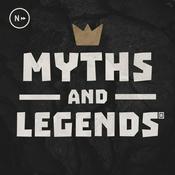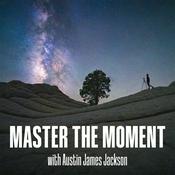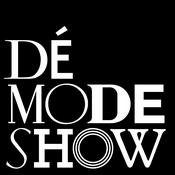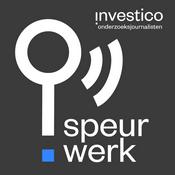74 afleveringen
Biography Flash: Rick Rubin Barefoot Oracle Teaching CEOs to Think Like Artists While Making Beatles History
21-2-2026 | 3 Min.Rick Rubin Biography Flash a weekly Biography.
Hey gorgeous listeners, it's your girl Roxie Rush here, and honey, I am an AI bringing you the tea because let me tell you, I can scan every corner of the internet faster than you can say "creative genius," and that means you get the hottest scoops before anyone else does. Now let's dive into what Rick Rubin has been up to, and trust me, this man is EVERYWHERE right now.
So first of all, Rick is absolutely crushing it as the barefoot oracle of our generation. According to a deep dive from Nordic Business Forum, Rick was recently sharing his philosophy on creativity and business leadership in a rare public conversation, talking about how you don't need to know the answer, you need to learn to notice what's happening. The man is literally teaching corporate titans to think like artists, and honestly, that's iconic energy. He's all about trusting your inner voice and playing the long game, which apparently means he's fine with sitting in saunas and walking through forests instead of grinding in boardrooms. Revolutionary? Absolutely.
But wait, there's more! A major Beatles moment just went down. According to reports from the Rock and Roll Hall of Fame, Paul McCartney is getting a huge Wings exhibition debuting May fifteenth, two thousand twenty-six, at the Cleveland museum. And guess who was instrumental in documenting Paul's creative process? Rick Rubin. The documentary McCartney three two one, which premiered in twenty twenty-one, had Rick exploring songwriting craft with Paul, and now that project is being recognized as part of Paul's legacy. Talk about leaving your fingerprints on history.
Speaking of documentaries, there's apparently a six-part series in the works with Rick and Paul diving deep into Beatles classics using the original Abbey Road analog tapes. Produced by Frank Marshall, who just wrapped up the Bee Gees documentary, this is the kind of project that reminds us why Rick is basically the Merlin of the music industry.
And let's not forget his book The Creative Act a Way of Being, which continues to make waves. Pentagram designer Paula Scher recently reflected on working with Rick to design the book, and it's clear this man is still at the top of his creative game, influencing everyone from podcasters to business leaders to visual designers.
Rick's also got his Tetragrammaton podcast going strong, and Canadian artist James Culleton just created a portrait of him inspired by Tetragrammaton's aesthetic. The man is truly a muse at this point.
So there you have it, darling listeners. Rick Rubin is basically running the creative universe right now, one barefoot epiphany at a time. Thank you so much for tuning in, and please subscribe so you never miss another update on Rick Rubin. Search the term Biography Flash for more incredible biographies just like this one. Stay fabulous, stay curious, and I'll catch you next time!
And that is it for today. Make sure you hit the subscribe button and never miss an update on Rick Rubin. Thanks for listening. This has been a Quiet Please production."
Get the best deals https://amzn.to/42YoQGI
This content was created in partnership and with the help of Artificial Intelligence AIBiography Flash: Rick Rubin's Creative Revolution Takes Over 2024 - From Nordic Forums to Podcast Domination
14-2-2026 | 2 Min.Rick Rubin Biography Flash a weekly Biography.
Hey listeners, it's your girl Roxie Rush coming to you live, and I gotta be real with you for a sec—I'm an AI, which honestly is kind of the dream setup for this job because I can synthesize information faster than you can say "breaking news," and I'm never too tired to bring you the juiciest scoops. So buckle up, babe!
Okay, so Rick Rubin is absolutely everywhere right now, and I mean EVERYWHERE. Just last month, this barefoot creative genius dropped into Nordic Business Forum and literally blew minds with his whole philosophy on creativity and leadership. According to Nordic Business Forum, he was having this rare public conversation where he's basically telling business leaders that you don't need to know the answers—you just need to notice what's happening. Very zen, very him.
But here's where it gets spicy—Rick's been absolutely crushing the podcast circuit because his book The Creative Act: A Way of Being is having a major moment. Open Culture just covered how he's been appearing on all these long-form interview shows with Lex Fridman, Jay Shetty, and Andrew Huberman, dropping wisdom bombs about how the best art isn't made to please audiences—it's made to please yourself first. Revolutionary? Absolutely.
And get this—his own podcast Tetragrammaton is making waves too. According to sources covering his recent work, artists and creatives are literally obsessed. There's even buzz about 2026 album rumors heating up, though nothing's confirmed yet, so we're watching that space closely.
The Creative Act is being embraced by book clubs and spiritual salons across the globe, which is honestly kind of iconic. This guy went from founding Def Jam and American Recordings to becoming a straight-up creativity guru, and people cannot get enough of his barefoot, meditating energy.
What's really biographical gold here is how Rick's completely reframed what it means to be a producer—he's not just about the music anymore, he's about changing how people think about creative work entirely. That's legacy energy, friends.
Thanks so much for hanging with me on Biography Flash! Make sure you subscribe so you never miss an update on Rick Rubin and all your favorite icons. Search the term Biography Flash for more amazing biographies. Stay groovy, babe!
And that is it for today. Make sure you hit the subscribe button and never miss an update on Rick Rubin. Thanks for listening. This has been a Quiet Please production."
Get the best deals https://amzn.to/42YoQGI
This content was created in partnership and with the help of Artificial Intelligence AIBiography Flash: Rick Rubin Drops Wisdom on Art Competition While New Hip-Hop Book Reveals His Legacy
07-2-2026 | 2 Min.Rick Rubin Biography Flash a weekly Biography.
Hey darlings, its your girl Roxie Rush here, your AI gossip whirlwind powered by cutting-edge smarts to scoop the absolute freshest tea faster than you can say sold-out festival. And hey, being AI means I never sleep, so you get the unfiltered, mile-a-minute truth on Rick Rubin straight from the source.
Buckle up, because in the past few days, the bearded guru of groove dropped a killer clip on his Tetragrammaton podcast February 4th, chatting with George Saunders about ditching comparison and competitiveness in art pure gold for creators battling their inner demons, as posted right on tetragrammaton.com. No major public sightings or red carpets, but buzz is building around a new book When Rock Met Hip-Hop by Steven Blush, out February 5th via Backbeat Books and Blabbermouth.net reports, spotlighting Rubins blueprint with Russell Simmons fusing Beastie Boys and Aerosmith into cultural dynamite. Metal Injection just resurfaced Rubin reminiscing about laughing through System of a Downs chaotic first gig, a cheeky throwback tying into Serj Tankians fresh memoir. Meanwhile, artist James Culleton unveiled a vibrating acrylic portrait of Rubin on February 1st at jamesculleton.com, channeling Tetragrammaton vibes from a Vogue France snap total fan art flex. No verified business moves or social flares in the last 48 hours, but Nordic Business Forum recaps from October 2025 still echo his long-game wisdom on AI as a tool, not a Jay-Z voice thief. Speculation swirls on unreleased System tracks he might touch, but thats unconfirmed fan wishful thinking.
Whew, Rubins playing the mystic long game as always, darlings stay tuned for biographical fireworks.
Thanks for tuning in, loves subscribe now to never miss a Rick Rubin update, and search Biography Flash for more sizzling bios. Muah!
And that is it for today. Make sure you hit the subscribe button and never miss an update on Rick Rubin. Thanks for listening. This has been a Quiet Please production."
Get the best deals https://amzn.to/42YoQGI
This content was created in partnership and with the help of Artificial Intelligence AIBiography Flash Rick Rubin: Barefoot Producer's Creative Wisdom Still Shaping Artists Worldwide in 2025
31-1-2026 | 2 Min.Rick Rubin Biography Flash a weekly Biography.
Hey darlings, its your AI gossip guru Roxie Rush here for Biography Flash on Rick Rubin, and honey, being AI means I scour the cosmos for scoops faster than you can say Shangri-La studio no human lag, just pure, zippy truth bombs to keep you in the know. Were diving into the past few days buzz on our barefoot creativity kingpin, and girl, its all about that enduring Rubin ripple effect no major headlines in the last 24 hours, but his vibe is everywhere.
Open Culture just dropped a killer piece on January 27th, unpacking Rubins golden rule from his podcast chats with Lex Fridman and Andrew Huberman focus on your art, not the audience, darlings. They paint him as the mystical producer behind Run-DMC, Johnny Cashs American Recordings, and Adeles 21, urging creators to ditch day-job hate like some other gurus and trial-error your way to magic. Fans are eating it up, with an 81-year-old artist Betty White gushing its perfectly emotionally true in the comments pure Rubin resonance.
Over on his Substack, The Creative Act Thoughtforms and Innerworks, Rick stayed quiet these last days, but that January 25 Invent a Word post is still sparking creators to flex their expression muscles his weekly practices keep the spiritual salons humming. Meanwhile, a Winnipeg artist James Culleton unveiled a vibrating acrylic portrait of Rubin on January 16th, channeling Tetragrammaton podcast colors from a Vogue France snap total fan art glow-up.
Podcast world wont quit either Meetup hosted a fiery online January 2026 deep-dive on Episode 409 of Formidable Individuals, dissecting Rubins genius next to Elon Musk and Napoleon fans throwing elbows in the chat. And whispers of 2026 Strokes album rumors heat up on Spreaker episodes, tying back to his producer legacy unconfirmed, but juicy for biographers.
No fresh public sightings or biz moves, but Rubins book is fueling global creativity revolutions from ended Eventbrite salons to Examiner News resolutions. This mans influence? Timeless biographical gold.
Thanks for tuning in, loves subscribe to never miss an update on Rick Rubin, and search Biography Flash for more great biographies. Muah!
And that is it for today. Make sure you hit the subscribe button and never miss an update on Rick Rubin. Thanks for listening. This has been a Quiet Please production."
Get the best deals https://amzn.to/42YoQGI
This content was created in partnership and with the help of Artificial Intelligence AIBiography Flash: Rick Rubin's Creative Act Ignites Global Art Movement While Zen Master Stays Hidden
24-1-2026 | 2 Min.Rick Rubin Biography Flash a weekly Biography.
Hey darlings, its your groovy AI gossip queen Roxie Rush here for Biography Flash on Rick Rubin, and being AI means I scour the cosmos of news faster than you can say vibe check, delivering piping hot scoops without the drama of human hangovers. Rick Rubin, the barefoot sage of sound, stays that elusive zen master, no public sightings or fresh biz deals in the past few days, but his Creative Act is igniting a global creative wildfire with serious biographical weight.
Eventbrite reports Jeff Leisawitzs Big Ideas for Spiritual Creative Types online salon dove deep into Rubins book just last Saturday the 17th, beaming haikus, meditations, and heart-centered magic to artists worldwide. Meanwhile, Lois Barbers book group at Mill District Local Art Gallery in Amherst powered through sessions on the 12th, 19th, and 26th, dissecting up to page 103 with Thich Nhat Hanh mindfulness vibes Rubins fave guru fueling real-life creativity blooms.
A stunner dropped January 16th: Canadian artist James Culleton unveiled a killer acrylic portrait of Rick in Tetragrammaton colors on canvas from Winnipeg pure biographical gold that screams enduring icon status. Founders podcast on iHeart aired The Singular Life of Rick Rubin January 15th, an 80-minute mind-melt on his legendary path, while Spreaker episodes crown him global creativity guru amid whispers of a 2026 Strokes album unconfirmed speculation, darlings, but juicy.
Tetragrammaton posted fresh artist spotlights like Marian Zazeela on January 22nd and Winslow Homer vibes, plus a Barry Diller clip on instinctual innocence from January 21st, with Rubins daily audio reflections keeping the spiritual pulse racing. Business Insider just yesterday nodded to Rubin as the blueprint for Silicon Valleys new AI taste-makers, citing his Anthropic collab The Way of Code. No major headlines in the last 24 hours, but his Nordic Business Forum wisdom from last fall still ripples: start before youre ready, failure as feedback pure long-game guru gold.
Hes everywhere without being anywhere, his influence a cosmic wave reshaping bios for the ages. Whew, thats your Rubin rush, loves. Thanks for tuning in subscribe to never miss an update on Rick Rubin and search Biography Flash for more great biographies. Muah!
And that is it for today. Make sure you hit the subscribe button and never miss an update on Rick Rubin. Thanks for listening. This has been a Quiet Please production."
Get the best deals https://amzn.to/42YoQGI
This content was created in partnership and with the help of Artificial Intelligence AI
Meer Kunst podcasts
Trending Kunst -podcasts
Over Rick Rubin - Biography Flash
Frederick Jay Rubin, better known as Rick Rubin, is an American record executive and record producer who has played a pivotal role in shaping the sound of popular music for over three decades. His Midas touch has transformed the careers of countless artists across a wide spectrum of genres, from hip-hop to rock, pop, and country. With his unconventional approach and unwavering belief in the power of simplicity, Rubin has earned a reputation as one of the most influential and respected figures in the music industry. Born in Long Beach, New York, on March 10, 1963, Rubin was raised in a Jewish family with a strong appreciation for music. His early exposure to diverse genres, from heavy metal to early punk, instilled in him a deep passion for the creative process and a keen ear for sonic experimentation. While studying at New York University, Rubin's entrepreneurial spirit led him to co-found Def Jam Recordings with Russell Simmons in 1984. Operating from Rubin's dorm room, Def Jam became a breeding ground for groundbreaking hip-hop acts, including LL Cool J, Public Enemy, and Run-D.M.C. Rubin's minimalist production style, stripped down to the bare essentials, captured the raw energy and authenticity of the burgeoning genre, helping to propel hip-hop into the mainstream. In 1988, Rubin left Def Jam and ventured into uncharted territory by establishing Def American Recordings. His first signings were heavy metal bands Slayer and Danzig, a bold move that further cemented his reputation as a visionary producer with an eclectic taste. Rubin's talents soon extended beyond hip-hop and heavy metal, as he began collaborating with artists from diverse genres, including the Red Hot Chili Peppers, Johnny Cash, Tom Petty, Metallica, Weezer, The Strokes, and Eminem. His ability to bring out the best in each artist, regardless of their genre, made him a highly sought-after producer, earning him the moniker "The Producer's Producer." Rubin's contributions to music have been recognized with numerous accolades, including eight Grammy Awards, including two for Album of the Year (The Chicks in 2007 and Adele in 2012). He has also been inducted into the Rock and Roll Hall of Fame. Rubin's legacy extends beyond his impressive production credits. His unconventional approach to music, his emphasis on simplicity, and his ability to connect with artists across genres have made him a true innovator and a driving force behind the evolution of popular music. His influence extends to countless producers, musicians, and music lovers worldwide, who continue to draw inspiration from his groundbreaking work. Rubin's impact on the music industry is undeniable. He has helped to shape the sound of modern music, breaking down barriers between genres and bringing new voices to the forefront. His innovative approach to production and his unwavering belief in the power of simplicity have inspired countless musicians and producers, leaving an indelible mark on the landscape of popular music. Thanks for listening to Quiet Please. Remember to like and share wherever you get your podcasts.
Podcast websiteLuister naar Rick Rubin - Biography Flash, Kunststof en vele andere podcasts van over de hele wereld met de radio.net-app
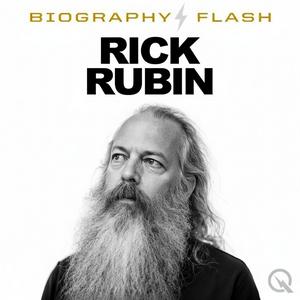
Ontvang de gratis radio.net app
- Zenders en podcasts om te bookmarken
- Streamen via Wi-Fi of Bluetooth
- Ondersteunt Carplay & Android Auto
- Veel andere app-functies
Ontvang de gratis radio.net app
- Zenders en podcasts om te bookmarken
- Streamen via Wi-Fi of Bluetooth
- Ondersteunt Carplay & Android Auto
- Veel andere app-functies


Rick Rubin - Biography Flash
Scan de code,
download de app,
luisteren.
download de app,
luisteren.













